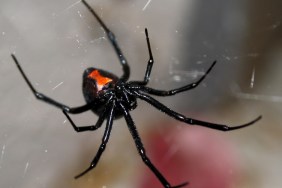
A Chronicle Of Misadventure And Manhood
I was born and raised on the Ojibwa Indian Reservation in Michigan’s Upper Peninsula. My great, great, great grandfather and his wife founded my hometown, setting up the first trading post that would later become the Village of Baraga. Half the population of 1,200 lives below the poverty line, and the other half tightropes it.
I escaped after high school, and attended the School of the Art Institute of Chicago. After a year, I transferred to Marquette University. After two years, I was expelled, and I wound up at Carroll College in Montana, where I met my wife. This is the Rube Goldberg chain reaction of things, the zodiacal dance diagram we unknowingly follow.
In 2010, I was newly married, hopeful, and, from what I understand about happiness, happy. My father, on the other hand, was not. He wore disenchantment on his face like an open wound, feeling, surely, that there’d been some typo in his destiny, a fork-in-the-road misstep.

Traveling the Alaska Highway.
That same year, I joined my father on a cross-country road trip to Alaska, to visit my mother-in-law, Karen. At some point, my father had fallen in love with her. The fact that he was still married to my mom didn’t seem to be a problem.
I’d always had little more than a financial relationship with my father. I worked at the family telephone company back in Michigan, and he gave me a paycheck. So when he appeared in the doorway of my basement office and suggested this trip, I didn’t get it.
“I don’t get it,” I said.
“Well, I’ve always wanted to see Alaska, to drive the Alaska Highway. Now that we know somebody up there, we finally have a reason to go.”
And so began my sixty-one-year-old dad’s three-week campaign for self-improvement. First came the daytrip to Green Bay to swap his 2009 BMW M3 for a 2010. Then there was the frenzied grooming of a recently reformed slob, death-defying jaunts on treadmills and Exerbikes, the shrinking of his waistline and the swelling of his pride.
Even more painful to watch, however, was my mom’s reaction to her husband’s behavior. There wasn’t one.
We set off at the beginning of June, to avoid Alaska’s rainy season.

The author’s father, posing on the Alaska Highway.
There were towns called Moose Jaw and Saskatoon, Medicine Hat and Wetaskiwin. Southern Alberta was a wasteland. Mining excavators the size of cathedrals carved the landscape into something post-apocalyptic. Once in a while, my father would pull over and take a picture.
We didn’t talk much on the drive. Every now and then he’d nod his head out the windshield and say, “Maybe we’ll take a side trip and see the Athabasca Oil Sands,” or “You think Karen wears makeup? I don’t think Karen wears makeup.” He was nervous, buzzing, on the brink of downright giddiness. It was difficult to watch him shrug out of my patriarchal construct and become something altogether separate: Bill, the man.
My mother-in-law was his white whale, his golden ghost, the defibrillator he hoped would resuscitate a heart bombed out by thirty-two years of marital ennui.
As we traveled north, the scenery became more majestic. For all my resistance, the Yukon was breathtaking. Around every bend in the Alaska Highway, there were bears, stone sheep, mountain goats. There were animals I had never even heard of, lounging in the grass.

Stone Sheep in the Yukon.
In Dawson City, I went on a bender. After polishing off a bottle of bourbon back at our room at the Westmark Inn, I guzzled overpriced Kokanees at the Drunken Goat, Old-Fashioneds at the Keno Lounge, and, finally, a Sourtoe Cocktail at the Sourdough Saloon. The Sourtoe is a shot—typically Yukon Jack—with an actual dehydrated human toe dropped in ($10; tasting notes: honey, wood smoke, toe). Once the toe hit my lips, I nearly projectile vomited all over everything. If you swallow the toe, patrons warned, you have to fork over $500 (the penalty was raised a few years later to $2,500, when a wayward traveler swallowed the toe on purpose, slapped $500 on the bar, and split).
My father and I reached Juneau, Alaska by ferry two days later. Karen was waiting for us in the lobby of the Hotel Baranof. My father fully embraced her, holding tight until she wriggled free. I watched my father watching Karen, but I couldn’t see what he saw, feel what he felt, hear the echoing sorrowful desire tolling through the man’s head. Love is like anything else, I thought. It doesn’t need to be reciprocated to exist, only to matter.
A couple days later, we took a ferry tour down Stephen’s Passage out to see the glaciers of the Tracy Arm fjord. I was standing out on the deck of the sixty-five-foot Captain Cook, and Karen, trailed by my father, exited the cabin, Nikon poised.
“Let me get a picture of you two,” she said.
My father walked up and hooked his arm around my shoulder. I flinched.

The author photographed by his father.
It’s because human beings are in the business of collecting memories. Our lives are built on them, and memory is our last deathbed set of encoded neural connections as our sensory parts burn out like light bulbs in a house. Because desperation is the strongest aphrodisiac, and humankind’s most powerful pheromones are triggered by loneliness. That’s the only way I could account for Karen’s open-armed reception to my father’s blundering hanky-panky, my fat dad’s clumsy flirtations. His on-the-spot chivalry was obscene, helping Karen at every turn with her coat, more or less manhandling her into and out of his BMW. And she seemed to find his buffoonery—his blunt nerdiness—somehow charming. When he’d tripped on the curb outside the BooYah Grill, Karen had rubbed his shoulder and asked if he was all right. When he spilled the glass of milk in his lap at Pizzeria Roma, she rushed to the counter for extra napkins.
At the mouth of the Limestone Inlet, we saw towering Sitka Spruce dotted with bald eagles. The granite mountainsides lining Holkham Bay were speckled with mountain goats. When we reached the Tracy Arm, there was a sea lion sunning itself on an iceberg. Karen and my father were stationed at the ship’s bow like hapless first loves, like shot-out teens with poor posture. When the wall of a glacier appeared like a crystal skyline, my father placed his gloved hand over Karen’s. She recoiled without looking at him.

North Sawyer Glacier, Tracy Arm fjord.
A column of ice the length of a city block calved off the glacier and slid into the water, sending a roller our way that rustled up laughter from everybody on board. But Karen pulled away from my father, rushed through the crowd and back into the cabin. My father followed. I reached out and grabbed his sleeve.
“What are you doing?” I said. “What’s going on?”
His eyeballs quivered wildly in their sockets. “Don’t worry about it,” he said, and jerked out of my grip.
My father cut our trip short by a week, and we left the following morning. The drive home was awkward.
Years later, my parents came to visit me in Los Angeles. I took them hiking in the San Gabriel Mountains, and they seemed to have a good time. Afterwards, we stopped for dinner at a roadside tavern. We sat silently looking over the menus for a while, until my father nodded at a taxidermied otter on the wall.
“You know,” he said, “two sea otters will hold hands while they sleep.” He looked at my mom. “It’s so they never float away from each other.”
Photos taken by and courtesy of the author.

“Tough Love” is a chronicle of misadventure and manhood written by Andrew Stark, a writer living in Portland, Oregon by way of rural Michigan and, most recently, Los Angeles.





